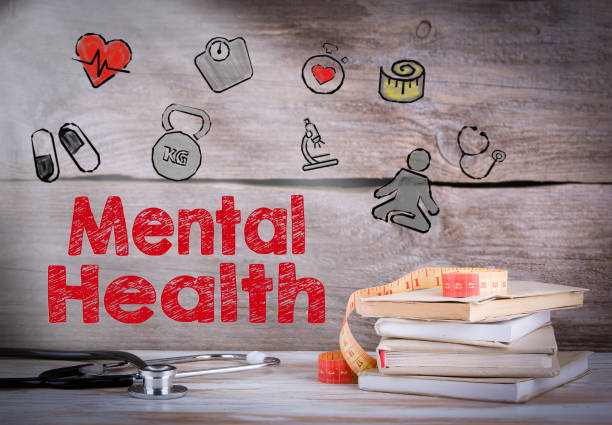Introduction
The ability to lead happy lives is intricately tied to our mental health, a vital component of human well-being. It affects how we think, feel, and act daily. It also influences our relationships, productivity, and overall quality of life.[1] Unfortunately, mental health issues are a global concern,[2] and one of the gravest consequences of untreated mental health problems is suicide.[3] Each year, an estimated 708,000 people die by suicide.[4] As of 2019, it was calculated that over 1.3% of 100 deaths were as a result of suicide.[5] It is said to be the fourth leading cause of death among 15 – 29-year-olds globally.[6] Unlike in Europe, suicide rates in low-and middle-income countries, in Asia and Africa, are steadily rising, representing about 77% of suicides in 2019 only.[7]
Thus, suicide prevention is not only a moral obligation but also a universal human right[8] that should be upheld with urgency and commitment. Every individual, regardless of their background, deserves access to the resources and compassion necessary to nurture their mental well-being and prevent the tragic loss of life that suicide represents. In a world that claims to prioritise human rights, it is disheartening to see how the issue of mental health and suicide prevention continues to be stigmatised. While most countries have been changing their laws to decriminalise suicide,[9] attempted suicide remains a criminal act in over 20 countries, particularly in low and middle-income countries where the phenomenon is rampant.[10]
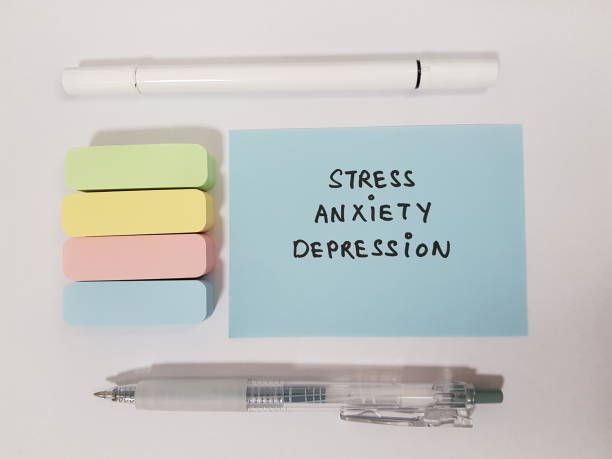
In Nigeria, for instance, anyone found guilty of trying to commit suicide faces a year in prison under Section 327 of the Criminal Code Act. A similar provision is also provided under section 231 of the Penal Code applicable in Northern Nigeria, which punishes attempted suicide with incarceration and a fine. The number of suicide attempts and suicide itself has not decreased in Nigeria despite the implementation of laws making suicide a crime. Between January 2010 and December 2019, a total of 350 suicide reports were identified from screening and sorting 10 online newspapers.[11] The failure of such legislation to hold up over time and address the underlying reasons for suicidal ideation is shown by the lack of a corresponding decline in suicide rates.
Meanwhile, a study[12] has proven that individuals with mental issues often experience human rights violations, both within and outside of psychiatric institutions. They are frequently the targets of misconceptions and erroneous ideas that encourage stigmatising and discriminatory attitudes, such as the notion that they are weak, dangerous, or incapable of making their own decisions. These violations include denial of employment, marriage, procreation, and education; malnutrition; physical abuse etc.[13] Promisingly enough, the international instrument on human rights – the Universal Declaration of Human Rights (UDHR),[14] and other regional and local instruments recognises the prominence of respecting all people for their human condition, without any discrimination, and based on the principles of dignity, freedom and equality. Specifically, the International Health Regulations (IHR) emphasizes the importance of fundamental rights, where it states that: “the implementation of these Regulations shall be with full respect for the dignity, human rights and fundamental freedoms of persons[15].”
With a focus on the theme of 2023 World Mental Health Day – ‘Mental Health is a Universal Human Right’[16], this article delves into the impact of discrimination against attempted suicide particularly as it relates to mental health, while exploring legal frameworks and policies that support mental health as a universal human right.
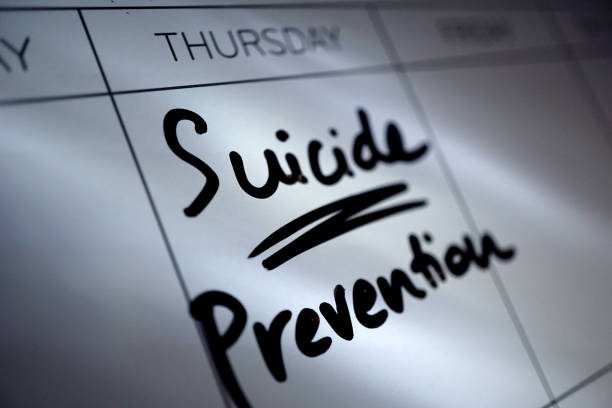
Legal and Ethical Frameworks
Established on the principles of the United Nations Committee on Economic, Social, and Cultural Rights[17], mental health is a basic human right[18], and everyone should have access to the best possible care to protect their mental health and advance their overall well-being. As highlighted by Sebastian[19], human rights and mental health are related in at least three different ways. First, abuses of human rights like torture and forced relocation are harmful to mental health. Second, policies, programmes, and regulations on mental health, such as coercive treatment policies, may affect human rights. And last, improving human rights has a positive knock-on effect on mental health. Given the physical and mental health relationship, these advantages go beyond mental health. Thus, advancing human rights in mental health care is required for ethical, moral, and legal grounds as well as for economic and therapeutic ones.
In Nigeria, the push for the decriminalisation of suicide began with targeted advocacy against and review of the colonial-era Lunacy Act of 1958 and its predecessor, the Lunacy Ordinance of 1916[20]. Before the Mental Health Act 2021 was passed and signed into law, the Lunacy Act governed issues of mental health in Nigeria for more than six decades. Advocates for revising the ordinance argued that a new law would be appropriate given the importance and awareness of mental health today. One of the flaws of the Lunacy Act[21] was its inability to address the needs of patients, instead, it just granted mental health practitioners custodial authority. Another area is its failure to distinguish between mental illness and madness or to classify mental illness with ignorance. The Lunacy Act’s language and content were discriminatory and placed more of an emphasis on defending society against lunatics than it did on addressing the needs of the patients[22]. These shortcomings of the Lunacy Act are addressed by the National Mental Health Act.
It should be noted that suicide, or seeking to terminate one’s life, is not driven by a single motive. A suicide attempt may have mental, cultural, or psychosocial causes. Suicide is currently regarded by the World Health Organization (WHO) as a mental health problem that has to be handled by licensed and qualified mental health professionals[23]. When defining mental health, the Act[24] defined it to include instances of “intellectual, psychosocial, or cognitive disabilities.”
The Mental Health Act’s inherent objectives[25] include among others, the provision of guidance for a logical, cohesive, and coherent response to mental health care in Nigeria, ensuring that all people with mental health issues have access to and exercise their fundamental human rights and freedoms, and ensuring access to comprehensive, well-thought-out, properly organised, and efficiently delivered mental health care services. The Act covers these vulnerable groups with rights as fundamentally enshrined in the 1999 Constitution of the Federal Republic of Nigeria.[26] Such person(s) is shielded from stigmatisation by members of society or groups that represent them because of the dignity of the humanity of mental illness. This is in light of global standards and other international instruments guaranteeing these rights. For instance, the landmark document in the history of human rights, UDHR, states that: “all human beings are born free and equal in dignity and rights.”[27]
Section 11(3) of the Mental Health Act provides for individuals who have mental health issues to have access to medical, legal and social services. Yet, despite the Act’s generally upbeat tone, accessibility does not equate to availability. Nigeria has some of the worst medical infrastructure in the world especially inadequate availability of modern medical equipment. With an estimated population of over 200 million people, Nigeria has less than 300 psychiatrists, or around 700,000 people per psychiatrist most of whom are urban-based and operate mostly out of tertiary medical institutions.[28] Therefore, a major concern for stakeholders in the mental health space is how to expand suicide prevention efforts through qualified specialists who can reach a sizable portion of the population without taxing the already overburdened healthcare system. Section 15(3) of the Act[29] mandates that facilities offer mental health care, but the majority of government hospitals have not complied with this specific provision of the Act[30].
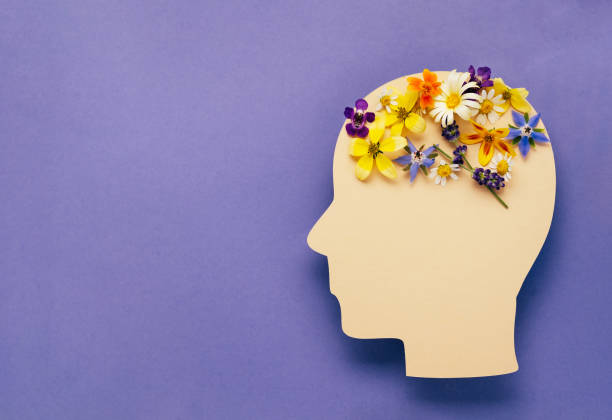
In addition to the above, section 24(2) of the Act provides for community-based mental health care which should guarantee the mandate of universal health coverage and equitable distribution of mental healthcare resources. It’s also significant to note that section 34 of the Mental Health Act departs from the Criminal Code’s provisions. No one with a mental health condition shall be imprisoned as a result of this provision without receiving treatment from a medical officer. Anyone suspected of having attempted suicide should first be turned over to a medical officer for proper care and supervision in a humane and sanitary setting, as WHO has recognised suicide ideation as a mental health condition.[31] By providing individuals with opportunities for rehabilitation and reintegration into society, the Mental Health Act seeks to improve the lives of people with a mental health condition[32].
The criminalisation of attempted suicide in Nigeria has outlived its usefulness and conflicts with the Mental Health Act’s anti-discrimination provisions[33]. Public health experts have identified suicide as a mental health problem, and the Criminal Code’s language should be amended to reflect this[34]. Recently, Malaysia’s parliament[35] passed bills to decriminalise suicide, Ghana[36] did the same thing in March this year while Guyana[37] and Pakistan[38] did last November and December respectively. India and Singapore have changed their laws since 2018 and 2020, respectively. These reforms come amid a global push by mental health advocates and academics to overturn punitive approaches to preventing suicides[39].
The goal of suicide prevention is to assist in the rehabilitation and reintegration of attempted suicide survivors into society[40]. This is one of the main reasons for the campaign for a change in mental health laws that can meet the survivors’ other unmet demands. The Mental Health Act is simply one piece of the puzzle; other elements must also be considered with coordinated, intentional efforts from important players in the health sector and non-medical professions[41]. It is on this pretext that Nigeria’s renowned health advocacy – the Centre for Health Ethics Law and Development (CHELD)[42], is calling for the full and proper implementation of the Act. In its latest policy brief on the National Mental Health Act[43], CHELD supports providing financial support for stakeholders, building the capacity of service providers, adoption of the Act by States, hospitals and other health facilities, and creating awareness for the public and relevant stakeholders on the provisions of the Act.
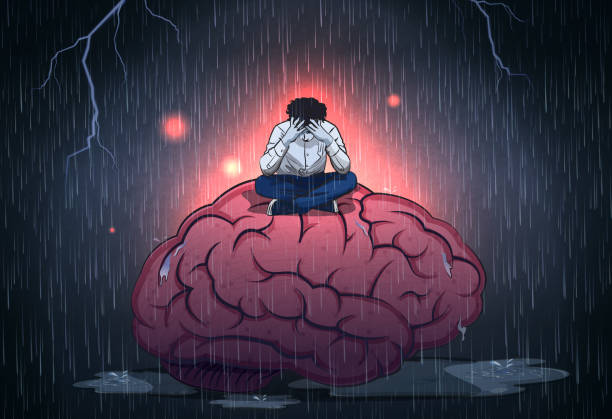
The United Nations Sustainable Development Goals and the World Health Organization Comprehensive Mental Health Action Plan 2013–2030[44] both aim to cut the global suicide mortality rate in half by 2030, taking into account the structural obstacles that people with mental health issues have had to overcome. A similar framework for preventing suicide in Nigeria is the Suicide Prevention Framework. All these are in recognition of mental health as a universal human right. Additionally, achieving the UN’s goal of universal health coverage by 2030[45] is the decriminalisation of attempted suicide. Criminalising attempted suicide makes it challenging for people in need to seek help and increases the stigma associated with mental illness and suicide. Universal health coverage cannot be achieved when individuals identified as vulnerable are punished instead of being provided with the required support. They must have access to adequate mental health care and support when they need it without worrying about legal repercussions.
Conclusion
Just as we have a right to physical health care and access to clean water and food, we also have a right to mental health care as it is an integral part of our overall well-being. Therefore, it is crucial to establish an environment where discussion of and receiving treatment for mental health issues is open, accessible and free of stigmatisation[46]. While one of the primary barriers to mental health care is the stigma that still surrounds the topic, suicide prevention begins with dismantling this stigma, making it easier for people to talk openly about their struggles and seek the support they need without fear. This can be said to be the most noteworthy part of the new Act[47] and the advocacy call for decriminalising attempted suicide.
Decriminalisation of attempted suicide is essential in the struggle to achieve a balanced approach to mental health care and nations that currently criminalise or punish attempted suicide are urged to revise their laws to meet global trends as recommended by the International Association for Suicide Prevention (IASP).[48] The Mental Health and Suicide Prevention Action Plan (National Suicide Prevention Strategic Framework (NSPSF) 2023-2030 and the National Mental Health Policy 2022-2027)[49] can only be implemented smoothly if there are coordinated efforts and intentional interactions to clear the system of elements that encourage victims to consider suicide. The Act[50] is a welcome improvement that will lead the revolution to give victims hope, but it can only be attained by taking positive steps.

Early intervention is a key aspect of the struggle to fight mental ill-health. Mental health conditions often manifest subtly long before they escalate to crisis levels[51]. Access to mental health education and awareness programmes can empower individuals to recognise these warning signs and take action[52]. By catching mental health issues early, we can prevent them from spiralling into crises that may lead to suicide.
Also, it is essential to create a healthcare system that is inclusive and accessible. Mental health services should be affordable and available to all, regardless of their financial situation. Governments and relevant shareholders must invest heavily in mental health infrastructure[53]. No one should ever have to choose between getting the help they need and going bankrupt.
Ultimately, mental health care and suicide prevention are fundamental human rights that everyone, regardless of condition, should have access to. To do this, we must collaborate to eliminate the stigma associated with mental illness, make financial investments in mental health services, and build inclusiveness. Through these, we can only expect to lessen the awful death toll brought on by suicide and establish a world where everyone may thrive mentally and emotionally if we treat mental health as a fundamental human right that must be respected like other human rights.
References
[1]Adam Felman and Rachel Ann Tee-Melegrito, What is Mental Health? (Medical News Today, 23 December 2022) https://www.medicalnewstoday.com/articles/154543 accessed 25 September 2023
[2] WHO, Mental Health, https://www.who.int/health-topics/mental-health#tab=tab_1 accessed 25 September 2023
[3] Farzana Akkas & Allison Corr, Mental Health Conditions Can Contribute to Suicide Risk (Pew Trusts 2 May 2022)https://www.pewtrusts.org/en/research-and-analysis/articles/2022/05/02/mental-health-conditions-can-contribute-to-suicide-risk accessed 25 September 2023
[4]World Health Organization, ‘Suicide’ (Who.int, 17 June 2021) < https://www.who.int/news-room/fact-sheets/detail/suicide > accessed 08 September 2023.
[5] International Association for Suicide Prevention, <https://www.iasp.info/about/> accessed 08 September 2023.
[6] ibid.
[7] ibid.
[8] Aaron Fellmeth and Nourin Abourahma, ‘The Human Right to Suicide under International Law’ Oxford Academic, Human Rights Law Review Journal
[9] Bob Lew and David Lester, ‘Decriminalizing suicide attempt in the 21st century: an examination of suicide rates in countries that penalize suicide, a critical review’ (National Library of Medicine, 23 June 2022) https://www.ncbi.nlm.nih.gov/pmc/articles/PMC9219191/ accessed 25 September 2023
[10] ibid
[11] Tosin Philip Oyetunji, M Yasir Arafat, Stephen Oluwaseyi Famori, Timilehin Blessing Akinboyewa, Michael Afolami, Moyo Faith Ajayi and Sujita Kumar Kar, ‘Suicide in Nigeria: observations from the content analysis of newspapers’ BMJ Journals https://gpsych.bmj.com/content/34/1/e100347
[12] Pan American Health Organisation, ‘Protection and promotion of human rights in mental health’ https://www.paho.org/en/topics/protection-and-promotion-human-rights-mental-health accessed 28 September 2023
[13] ibid
[14] Article 7
[15] Article 3(1) of the International Health Regulations
[16]World Federation of Mental Health, ‘Mental health is a universal human right’ https://wfmh.global/news/2023.23-03-29_announcement#:~:text=’Mental%20health%20is%20a%20universal,WFMH%20members%2C%20stakeholders%20and%20supporters. accessed 28 September 2023
[17]Human Right Library, UN Committee On Economic, Social And Cultural Rights http://hrlibrary.umn.edu/svaw/law/un/enforcement/CESCR.htm#:~:text=The%20Committee%20on%20Economic%2C%20Social,the%20Economic%20and%20Social%20Council accessed 04 October 2023
[18] International Association of Suicide Prevention ‘Mental Health & Suicide Prevention in Universal Health Coverage’ December 12 2022 https://www.iasp.info/2022/12/12/universal-health-coverage-day/#:~:text=Suicide%20prevention%20needs%20to%20be,neglected%20within%20universal%20health%20coverage.
[19]Sebastian Porsdam Mann, Valerie J. Bradley, and Barbara J. Sahakian, ‘Human Rights-Based Approaches to Mental Health’ (Health and Human Rights Journal 18 June 2016) https://www.ncbi.nlm.nih.gov/pmc/articles/PMC5070696/ access 04 October 2023
[20]Walsh Medical Media https://www.walshmedicalmedia.com › …PDF Policy Analysis on Nigerian Lunacy Act (1958): The Need for a New Legislation
[21]Lunacy Act
[22]Washington University Open Scholarshiphttps://openscholarship.wustl.edu › …PDF Mental Health Legislation and Involuntary Commitment in Nigeria
[23]WHO Resource Book on Mental Health, Human Rights & Legislation <http://www.who.int/mental_health/policy/essentialpackage2/en/index.html> accessed 25 September 2023.
[24] Mental Health Act of 2021
[25] Section 1(1) of the Mental Health Act 2021.
[26] Section 12(1) of the Mental Health Act 2021.
[27] Article 1 of the Universal Declaration of Human Rights
[28]Mental Health in Nigeria in Nigeria Survey . 2019. Africa Polling Institute and EpiAFRIC. <https://nigeriahealthwatch.com/wp-content/uploads/bsk-pdf-manager/2020/01/MENTAL-HEALTH-IN-NIGERIA-SURVEY-Conducted-by-Africa-Polling-Institute-and-EpiAFRIC-January-2020-REPORT.pdf> accessed 25 September 2023.
[29]ibid
[30]ibid
[31] Section 34(6) of the MHA.
[32] Nigeria Health Watch https://articles.nigeriahealthwatch.com › From the Lunacy Act to the First Mental Health Act in Nigeria: Five Takeaways
[33]The Conversation, Nigeria’s Law Makes It A Crime To Attempt Suicide – There Are Better Ways,https://theconversation.com/nigerias-law-makes-it-a-crime-to-attempt-suicide-there-are-better-ways-to-prevent-tragedy-169398
[34]Punch Newspapers, Imposing Jail Terms For Attempted Suicide Will Worsen Suicidal Rate: Experts,https://punchng.com/imposing-jail-terms-for-attempted-suicide-will-worsen-suicidal-rate-experts/?amp
[35] Koh Ewe, Here’s Why Malaysia and Other Countries Are Decriminalizing Suicide (Time, 28 June 2023) https://time.com/6290858/malaysia-suicide-decriminalization-mental-health/ accessed 25 September 2023
[36]Iddi Yire, Ghana News Agency, Parliament Passes Criminal Offences (Amendment) Bill, 2021 to Decriminalise Attempted Suicide, https://gna.org.gh/2023/03/parliament-passes-criminal-offences-amendment-bill-2021-to-decriminalise-attempted-suicide/
[37]Caribbean Today, CMC, Guyana National Assembly Approves Suicide Prevention Bill, https://caribbeantoday.com/sections/politics/guyana-national-assembly-approves-suicide-prevention-bill
[38]Pakistan abolishes colonial-era law that punishes attempted suicide: Report, https://www.hindustantimes.com/world-news/pakistan-abolishes-colonial-era-law-that-punishes-attempted-suicide-report-101671808455141.html
[39]WHO launches new resources on prevention and decriminalization of suicide, https://www.who.int/news/item/12-09-2023-who-launches-new-resources-on-prevention-and-decriminalization-of-suicide
[40]National Institutes of Health (.gov) https://www.ncbi.nlm.nih.gov › NB… National Strategy for Suicide Prevention Goals and Objectives
[41]National Institutes of Health, Mental Health Legislation In Nigeria: Current Leanings And Future Yearnings,https://www.ncbi.nlm.nih.gov/pmc/articles/PMC6735074/
[42]CHELD,https://cheld.org/who-we-are/
[43]CHELD Policy Brief on the National Mental Health Act 18 July 2023 https://cheld.org/sdm_downloads/national-mental-health-act/?fbclid=IwAR1UwdHAdzx1thTm-CpC-FM17ncNa4j6MQF_TKuJUAcje-ocB3YixOICJFg access 04 October 203
[44]WHO, Comprehensive Mental Health Action Plan 2013-2030 https://www.who.int/publications-detail-redirect/9789240031029
[45]The 17 UN Sustainable Development Goals https://sdgs.un.org/goals
[46]Laxmi Naresh Vadlamani and Mahesh Gowda, Practical implications of Mental Healthcare Act 2017: Suicide and suicide attempt https://www.ncbi.nlm.nih.gov/pmc/articles/PMC6482674/ accessed 26 December 2023
[47]ibid
[48]International Association for Suicide Prevention https://www.iasp.info/2022/12/12/universal-health-coverage-day/ access 25 September 2023
[49] FY 2023 National Strategy for Suicide Prevention, https://www.samhsa.gov › pdfPDF
[50]ibid
[51]Mental Health Management Group, Why Early Intervention for Mental Health Is So Important, https://mhmgroup.com/why-early-intervention-for-mental-health-is-important/#:~:text=Early%20intervention%20for%20mental%20health%20can%20help%20prevent%20the%20development,be%20quicker%20and%20less%20painful.
[52]BMC Public Health, Suicide Prevention For Youth – A Mental Health Awareness Program: Lessons, https://bmcpublichealth.biomedcentral.com/articles/10.1186/1471-2458-12-776
[53]Marco Colizzi, Antonio Lasalvia & Mirella Ruggeri, International Journal of Mental Health Systems, Prevention And Early Intervention In Youth Mental Health: Is It Time For A Multidisciplinary And Trans-diagnostic Model For Care?, https://ijmhs.biomedcentral.com/articles/10.1186/s13033-020-00356-9

